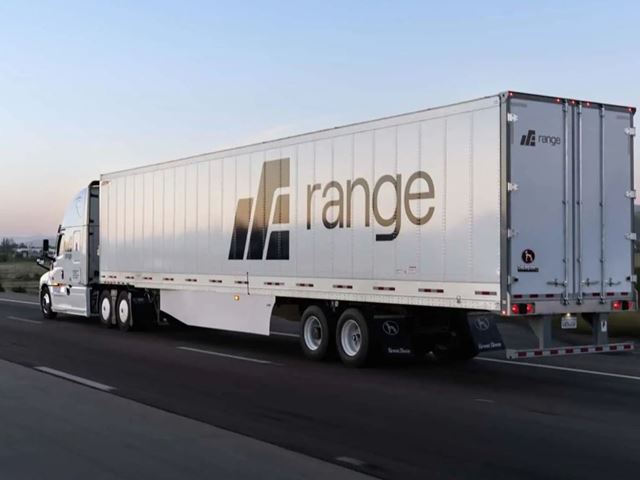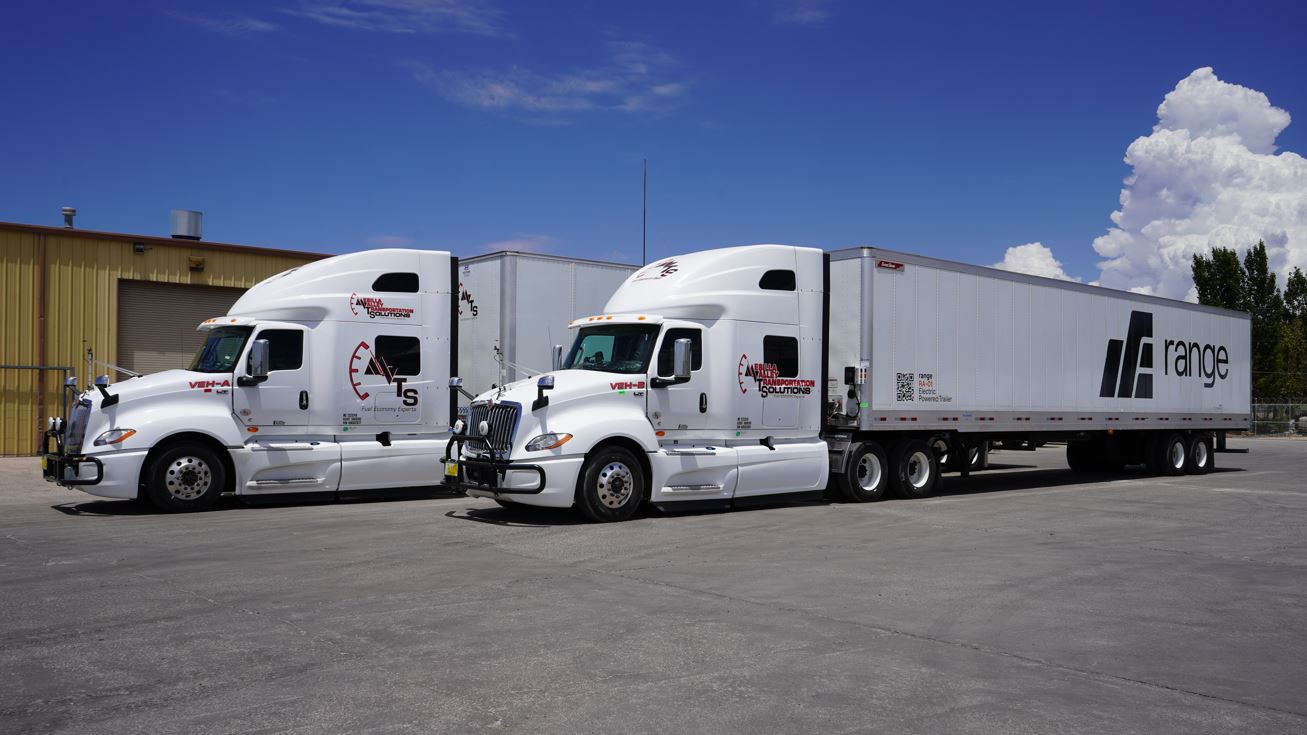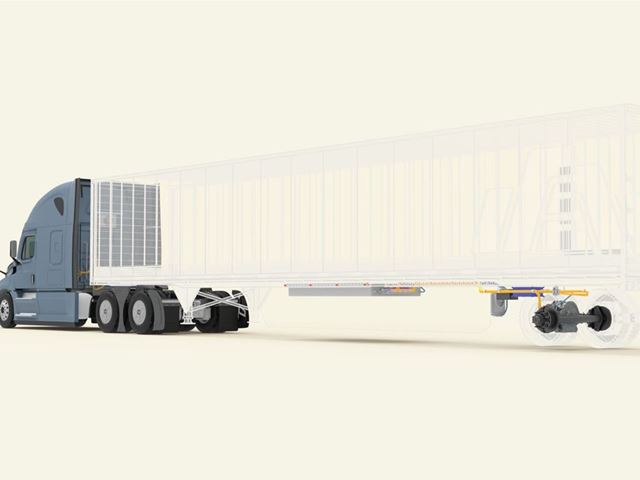
- Latest: Welcome to Auto Futures - Mobility News, Features, Exclusives and More...
- Latest: Subaru Europe Unveils the Brand's First All-Electric Compact SUV
- Latest: Lucid, Nuro & Uber Partner on Next-Generation Autonomous Robotaxi Service
- Latest: GM & Redwood Materials to Repurpose EV Batteries for Energy Storage
- Latest: Stellantis Discontinues Hydrogen Fuel Cell Technology Development Program
- Latest: Paving the way for an Electrified Future - L-Charge CEO
"Our Trailers are Built to Ease the Transition to Electrification" - Range Energy's CEO, Ali Javidan
Adrian Smith
- Mar 14 2024

Ali Javidan started his career in the motorsport industry and then made a move into the electrification space in 2007 by joining Tesla. He helped develop the sedan which eventually became the industry-defining Tesla Model S.
"As Tesla accelerated the electrification of passenger cars, I looked forward to other companies grabbing the baton and deploying scalable solutions for the decarbonization of commercial transportation," Javidan, Range Energy's CEO. tells Auto Futures.
"However, over a decade after developing and deploying more advanced transportation technology at Google and Zoox, I noticed that the commercial trucking industry had been overlooked and founded Range Energy."
From the beginning, the Range team recognised that the trucking industry hadn’t considered the trailer as a viable step towards electrification.
"Range was born from the understanding that the usage patterns and practical constraints in commercial trucking fundamentally differ from the passenger car space, and that trailers were the key to scalable decarbonization of the industry," he says.
The California-based company's powered trailers can double the range of electric semi trucks beginning to hit the roads. They offer a turn-key electrification system that includes a battery pack, e-axle, and patented smart kingpin, along with an integrated controls stack.
"Our trailers are built to ease the transition to electrification. We’re helping fleets meet near-term emissions mandates with the ability to hook up to any diesel-powered truck today, but we will also double the range of future e-semis when they scale in the market. Initial customer pilots as well as third-party emissions testing has shown Range’s trailer technology can immediately improve fuel efficiency by over 40% as well as reduce emissions up to 70% for diesel fleets."
The trailers are designed to minimise operational disruption as they can be charged with existing infrastructure while being loaded or staged.
"Overall, the simplicity of our trailer is what makes our technology such a foolproof investment for fleets – we’re not dependent on omnipresent megawatt charging infrastructure to deliver significant benefits and, even when uncharged, our trailers can be towed like a traditional trailer to get cargo to its destination."

Making Truck Driving Safer
There are more than 500,000 large truck accidents recorded annually in the US, according to the Federal Motor Carrier Safety Administration (FMCSA), These are are often a result of brake problems.
"These accidents are very dangerous, costly, and cause an estimated 4,000 runaway truck incidents/year in the US. Safety is at the core of our mission, and our technology makes drivers more confident because our regenerative braking system reduces the need to use friction brakes and decreases the chance of brake fade from overheating. Simultaneously, this system returns energy from braking into a battery pack," explains Javidan.
Making drivers’ jobs cleaner, safer, and more efficient is quite literally Range Energy's mission statement, Javidan tells us.
"In customer pilots, we’ve gotten near-perfect driver satisfaction scores, and oftentimes drivers remark how much smoother their drive is when hauling a Range trailer. We’ve designed our trailer system to fit into the way drivers currently interact with trailers, and drivers have appreciated the fact that even when the trailer reaches a low state of charge, they’re still towable like any other trailer."
"Drivers have embraced the sense of confidence they get when towing our trailers down long downhill grades. Because we’re able to use regenerative braking, we can keep the trailer’s foundation brakes cold and ready for emergency stops," he adds.
Range is being supported by California's Clean Off-Road Equipment (CORE) program.
"The California Air Resources Board (CARB) has recognized the important role that trucking equipment, like trailers, play in decarbonization and developed the CORE program to help, and incentivize, California fleet owners and operators to deploy zero emissions equipment. The program provides a streamlined voucher process by which fleets can receive funding to offset the cost of cleaner off-road equipment, like Range’s trailer."
"Range was the first trailer electrification platform to be accepted into CORE, which was a huge milestone for us but also the commercial trucking industry that is looking for near-term ways to accelerate decarbonization efforts," he says.

A Spirit Of Partnership
Range Energy recently announced $23.5 million in new financing, which it will use to to accelerate its work on customer pilot programmes in parallel with advancing towards full-scale production of its trailers.
"We’ll also invest resources towards the initial development of our new trailer data and telematics platform to bring unique insights to customers. In the long-term, our trailers are set to ramp up production in 2025 and we’re exploring strategic partnerships that will enable us to quickly scale," says Javidan.
The company has also released an operational expenditure (OpEx) savings calculator for commercial fleet owners and operators.
"It’s a first-of-its-kind online tool that captures and analyzes unique data points from fleets, including the price they pay for diesel fuel, baseline fuel efficiency, current electricity costs, and miles driven per year to determine overall maintenance, fuel, and electricity savings from the implementation of electric powered trailers within existing fleets."
Finally, we asked Javidan for his thoughts on what the US commercial truck sector will look like by 2030.
"The trucking industry is clearly under a lot of pressure to change. Supply chains are being reshaped, shippers are becoming increasingly carbon-conscious, and all businesses are refocusing on ways they can be more cost-efficient in their operations. Change is difficult in any industry, and we believe that the best way to help legacy businesses successfully begin their transitions is to meet them where they are with deep empathy," he predicts.
"As we develop a new tool to help commercial trucking fleets achieve their environmental, safety, and business goals we’ve tried to do so with a spirit of partnership. No one can say with certainty what commercial trucking will look like by 2030, but I know that the trusted relationships we’re building at Range today will help us reach a cleaner and safer trucking sector in the future," concludes Javidan.
Tags
Popular Categories
